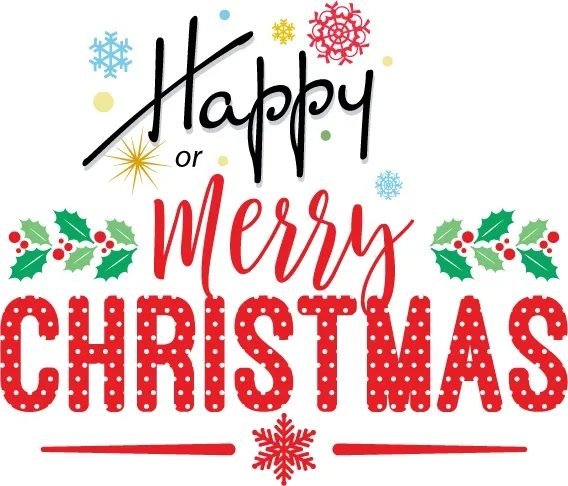
The phrase “Merry Christmas” is traditionally used in the United States while “Happy Christmas” is more prevalent in the United Kingdom, both the expressions have altered and developed with time. Ever wonder why?
Happy and merry are synonyms, but they actually have different very different connotations. Merry implies more of a verb type action while happy, leans more toward quiet contentment.
According to grammarist.com Merry Christmas and Happy Christmas are both greetings used during the last part of December, around Christmas time. The first word of each is only capitalized when used as a greeting. When one is speaking of a happy or merry Christmas, the adjectives are lowercase.
Merry Christmas began as a saying in the 1500s. It was recorded in a letter as a wish that God would send the recipient a “mery Christmas”. It was solidified as a capitalized greeting by Charles Dickens in his great work A Christmas Carol.
Queen Elizabeth II, for whatever reason, did not use Dickens’ phrase. Instead, she used the phrase Happy Christmas in her broadcasts to her subjects. After her use, the term gained popularity and is still the most common form in Great Britain and Ireland.
There is debate whether or not the greeting has religious meaning and whether a more generic Happy Holidays should be used instead to respect non-Christian views. Be aware of your audience when choosing the correct phrase.
Obviously there are many theories. Country Living.com has yet another view.
Ever wondered where the phrase “Merry Christmas” comes from? It’s a relative question since we live in a country where “Happy Easter” and “Happy Birthday” are the norm, making “merry” part of “Merry Christmas” pretty unique. No one is entirely certain where the “merry” originated, but there are several interesting theories.
Wait. Does anyone say “Happy Christmas”? Yes! For starters, it’s important to note that “Happy Christmas” hasn’t faded completely—it’s still widely used in England. This is believed to be because “happy” took on a higher class connotation than “merry,” which was associated with the rowdiness of the lower classes. The royal family adopted “Happy Christmas” as their preferred greeting, and others took note. (In fact, each year, Queen Elizabeth wished her citizens a “Happy Christmas,” rather than a merry one.)
A dated letter from bishop John Fisher to Henry VIII’s chief minister Thomas Cromwell revealed that “Merry Christmas” has been used since at least 1534. The English carol, “We Wish You a Merry Christmas,” which was introduced in the 1500s, also uses the popular phrase.
So when did “Happy Christmas” become “Merry Christmas” in the U.S.?
Historians believe it might boil down to a simple grammatical lesson. “Happy” is a word that describes an inner emotional condition, while “merry” is more of a behavior descriptor—something active and maybe even raucous.
As both words evolved and changed meanings over time, people slowly stopped using “merry” as its own individual word during the 18th and 19th centuries. It stuck around in common phrases like “the more, the merrier,” as well as in things like Christmas songs and stories, largely due to the influence of Charles Dickens. The Victorian Christmas went on to define many of today’s Christmas traditions.
It’s no wonder that now when we hear “Merry Christmas” we hear something sentimental. Even the word “merry” on its own now makes us think of December 25.

